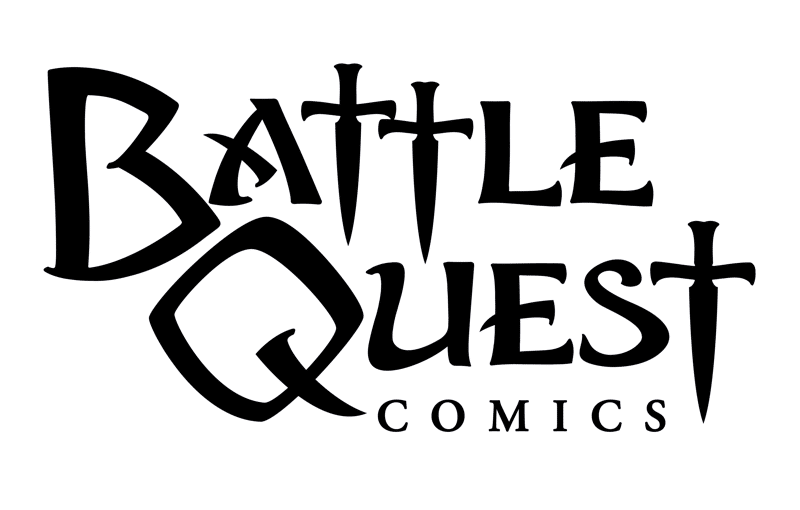Sponsored by Battle Quest Comics
By Brian Hibbs
Things are changing fast in comics retail, and as last month’s conversation about where to source product in the post-Diamond world shows, this mostly is bringing a radical increase of labor (but with no meaningful increase in the amount of money coming in!)
One of the best ways retailers can mitigate at least some of this work increase is by having a strong Point of Sales (or POS, for short) system that helps automate significant percentages of the labor. There are several options available to stores, but sadly the most adopted system was Diamond’s: ComicSuite. And the new iteration of Diamond has announced that they are no longer supporting it, nor the customer-facing PullBox, which allowed people to manage their subscription orders. This leaves an unknown number (but probably really meaningful) of stores with uncertainty about what and how to move forward in 2025. While there is no specific data about how many stores, it is generally believed that ComicSuite was the most adopted system, simply because it was “so easy” to bring it in since it was a function from the single largest distributor of comics. But ComicSuite will no longer be supported as of the August 1 (!) – essentially no warning.
I can’t find a public-facing ComicsPRO survey since 2022’s, but Publisher Weekly had a report on the 2023 survey that includes this sentence: “Almost 80% of comic retailers operate using a point of sale system. The most common systems are ComicSuite/RMH, ComicHub, Square, and Shopify.” If there were approximately 3000 comic book stores, worldwide, that would suggest as many as 2400 using a POS system. And odds are high therefore that there could be several hundred to more than a thousand, that used ComicSuite as their POS. The next most highly adopted system appears to possibly be ComicHub, and ICv2’s sales charts, which are generated via ComicHub, says “During the period for which these reports were generated, there were over 125 stores using the ComicHub system”, which is a pretty small penetration (This looks like boilerplate that doesn’t change month-over-month, however, so it could be much higher?)

There are, and always have been, many many different ways to approach your own POS. For decades, I used MOBY, which shut down new development in 2019, but that still worked very robustly for us until distribution itself began to fragment thanks to DC pulling out of the Diamond system in 2020. I kept using MOBY as long as I could, but eventually the amount of labor to maintain multiple (and barely interoperable) databases from Diamond, PRH, and Lunar (not to mention the other six or more graphic-novels-only “bookstore” distros), drove me to walk away from it this last April. I’ll tell you who I switched to later, so as to not bias this column as much.
At one end of the spectrum there are what are essentially “generic” POS systems, like Square, Shopify or Lightspeed, that are absolutely functional for tracking items for sale and give a reasonable front-end for selling them, but that don’t have many of the deeper tools that I personally believe one needs to run a robust sales operation. For one example, at Comix Experience, we have approximately 7500 different graphic novels in stock, so I absolutely require a system where I can set different “minimum points”, for each individual SKU, where I can say “never have fewer than 3 copies of this book, and 5 copies of that one, and just one copy of all of these”. Then, when it is time to do my individual weekly orders for the nine primary places we order graphic novels from, it’s just a series of “one button” operations to generate those orders, with the correct quantities, going to the correct places. Now, if you’re a smaller store, carrying less book inventory, and/or if you only order from a few places, then maybe you don’t need that kind of functionality – I first installed MOBY after we crossed approximately 1000 book format SKUs, where the counting-and-organization aspects of book reorders started taking more than, say, two hours each week, and the POS was able to cut that specific job down to well under fifteen minutes, time well saved! I can’t even imagine doing that same work with seven times the stock!
Additionally, “generic” POS systems don’t allow you to do things like manage subscription orders for periodicals all on their own – you need to have additional systems that are “add ons”, to be able to handle those kinds of key tasks. There certainly are systems like Manage Comics or League of Comics Geeks that can do a fantastic job of handling the subscription management portion, and then interface those to Shopify or Lightspeed. However, they’re not fully featured programs that handle all of the other aspects that you want a robust POS system to address – they’re primarily focused on just one aspect: subscription management. Most likely, your needs as a store are going to revolve around what “kind” of a store you are, and how much inventory you carry, and what kinds of reporting needs you have. If you’re mostly a hobby store with a small sideline of comics your needs are going to be different from a full line comics shop are going to be different from a hybrid Game/comics store, and so on.
Even ComicSuite was actually an “add on”! The core system underpinning ComicSuite was RMH: Retail Management Hero (originally RMS: Retail Management System from Microsoft), and there is at least one project directly being launched as a RMH add on to replace ComicSuite with as little change in hardware or functional interface continuity as possible. The first comes from MCS Multi Computer Solutions (they have no website?) partnering with the aforementioned Manage Comics, though from this press release it doesn’t sound like it’s quite ready for release? But if they can pull things together quickly enough, this might be a real “save the day” for the bulk of ComicSuite users.
It’s still entirely possible (though a lot of work to be sure) to run stores without a POS whatsoever, of course! Spreadsheets still work, and it is entirely possible to build even paper-based systems which will still do most of what you need, but if you want to have 24/7 digital stores, inventory control and “automatic” ordering for perennial items, and periodical management that directly interfaces with ordering processes, then you want to have a POS that is specifically designed for comic book stores and all of our specific idiosyncrasies. Bonus points when the day-to-day development comes from people who still run their own store on the regular.
The oldest and most-established dedicated POS for comic shops is ComicHub. It has been running for years! And most users seem extremely happy with it. It is extremely full featured, as well, with a great deal of stability.
The newer competition is Comic Shop Assistant. This is the POS I have selected at Comix Experience. There are still features for it that are in Beta-only, but full development is moving swiftly, and they’ve been wonderful about listening to my specific feedback and giving me options that I want.
The thing that makes me personally prefer CSA to ComicHub is CSA’s flexability. ComicHub is largely centered around a static database that is exactly the same for every store. In CSA, your database is specific to your store. This allows me, for one silly little example, to number each of the seven “Bring on the Bad Guys” “one shots” as “(x of 7)”, so that the consumer can see the order things are supposed to fall. I could give you ten different examples each and every week in which I tweak the way the default data arrived to fit in with my specific and unique vision of the best ways to present comics to people, and that level of control is absolutely essential to how I run my store.
Things appear to be rapidly winding down at the new Diamond. The number of publishers who have announced they will no longer be fulfilling future orders for Diamond is growing every week (there were only two individual items on the Final Order Cutoff list the week due 7/21!), and when you couple that with the end of a physical “Previews” catalog, and the immediate shutdown of ComicSuite, it’s hard to imagine that Diamond will still be distributing comic books whatsoever by the end of the year. But this is going to almost certainly mean that the single largest problem to running a “full service” comic book store is very rapidly going to be “where do we get data files, to the standards that we need, to be able to bring the material in, in the first place?” Instead of having a centralized source that had clear editorial and nomenclature standards, as well as solid control over critical meta-data like series codes, we now have two differently structured, and entirely siloed sources that call the same product entirely different things. Even if I can order directly from a Macmillan or a Simon & Shuster or any other book distributor, do they have the capability to even deliver that data to me in a trivially in- and di-gestable format?
This is where I think that fully robust POS system is going to become more critical for stores, because we’re now entering the Wild West for data and solicitations for a while, and having to figure out a lot of this stuff is going to lead to fewer stores carrying anything that’s outside of the twin effectively-monopolies of PRH and Lunar.
**********
Brian Hibbs has owned and operated Comix Experience in San Francisco since 1989, was a founding member of the Board of Directors of ComicsPRO, has sat on the Board of the Comic Book Legal Defense Fund, and has been an Eisner Award judge. Feel free to e-mail him with any comments. You can purchase the two collections of Tilting at Windmills (originally serialized in Comics Retailer magazine) published by IDW Publishing. You can also find an archive of pre-CBR installments right here.
Sponsored by Battle Quest Comics











The website for MCS Multi Computer Solutions is itsmcs.com.
Thanks, Chris — I couldn’t find a clean link on the first two pages of a Google Search, and there were no links within any of the press releases either.
-B
ComicsHub is down to barely 100 stores using it, so many issues and limited functionality. The store I manage is basically down to using at as a checkout tool. 10 comics at $3.99, 6 comics at $4.99, 1 at $9.99, 1 at $24.99 (this is just an example of customer checking out). We had to make a choice, speed at checkout, or generating a long line of impatient customers.
Comments are closed.